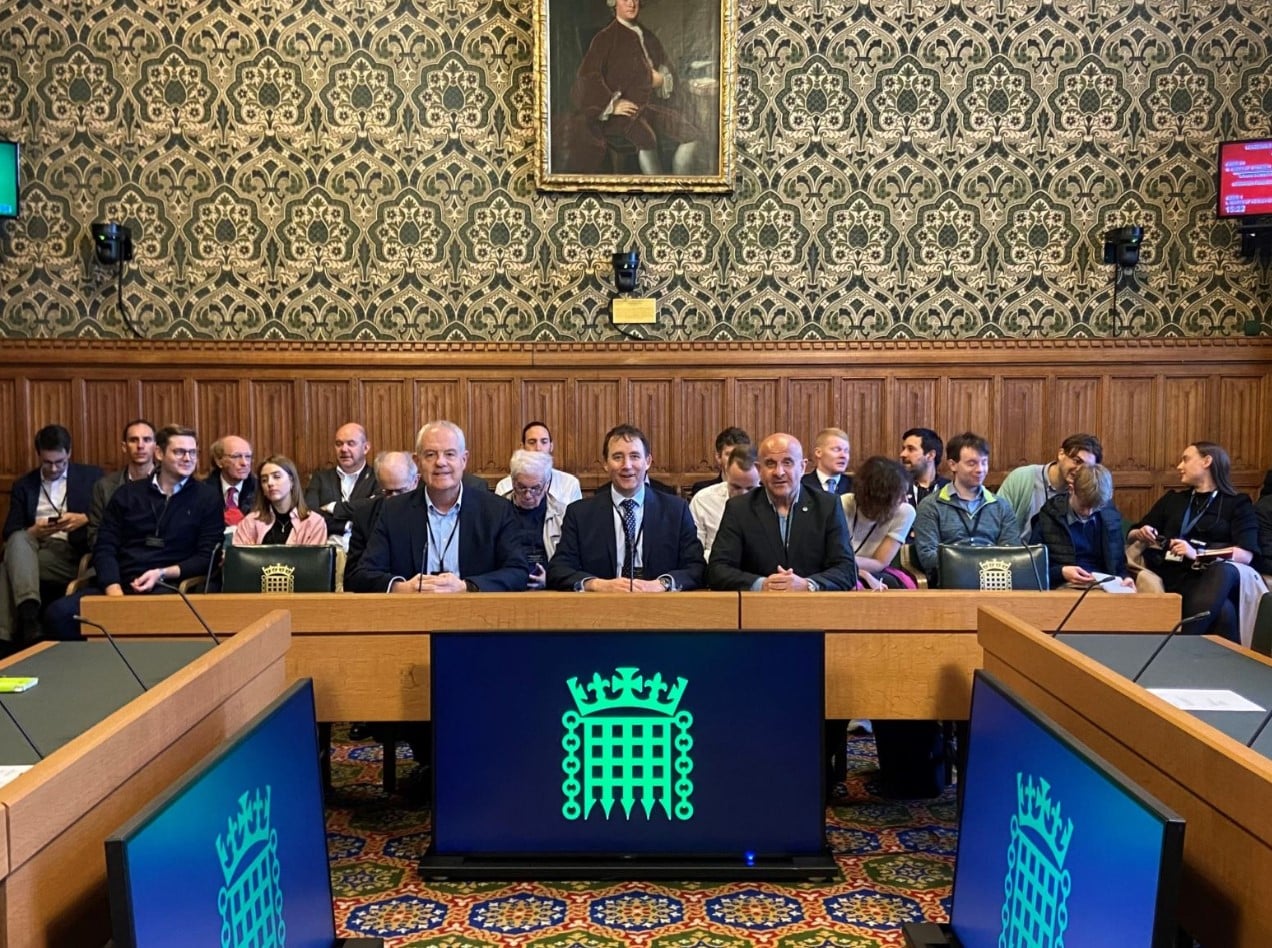The Railway Industry Association’s (RIA) Technical Director has presented to the All-Party Parliamentary Rail Group (APPRG), explaining how vital it is that the Government makes decisions on infrastructure and rolling stock which will help the sector deliver a better and more sustainable railway for passengers and taxpayers in the future.
David Clarke explained more about RIA’s strategy ‘A lower cost, higher performing net-zero railway’, which sets out a pathway to a lower cost, higher performing net zero railway by 2050, whilst also showing how making rolling stock procurement decisions now can stave off the current threat to UK rolling stock manufacturing capability. He was speaking alongside Malcolm Brown, Chief Executive of Angel Trains, and Nick Hughes, Senior Director Sales UK & Ireland for Hitachi Rail Europe.
David said: “Our analysis provides an ‘art of the possible’ strategy for the Government and the railway industry. Ordering a fleet of battery-electric trains, a strategic and a consistent approach to electrification and quick green wins on less intensively used routes can all help achieve a more efficient and low-carbon railway by 2050. Considering this as a ‘track and train’ strategy allows us to permanently lower the cost of running the railway.”
RIA’s rail strategy fast tracks benefits by focusing on opportunities for carbon reduction and air quality improvements in the short-term. It will also enhance performance by introducing newer and more reliable trains while achieving lower costs and greater economic benefits by reducing ‘boom and bust’ for the rail supply sector.
Speaking at the APPRG, Nick spoke of the UK’s distinguished history of rail manufacturing, but outlined how the sector needed “clarity” on the pipeline of orders. He added: “The sector is hugely important to the UK economy and sustains 30,000 highly skilled jobs. The Government needs to convert opportunities to orders.”
Nick outline how RIA’s recent strategies on rolling stock and decarbonisation can provide that clarity. In particular, Nick pointed to RIA’s analysis that a consist pipeline of orders of around 600 carriages per annum can be created from fleet replacement and upgrade. He also called for the creation of a cross industry group on rail decarbonisation, which would also incorporate key stakeholders in the power sector, so grid management and energy capacity was factored into decision making.
The strategy explains how a co-ordinated track and train approach could deliver improved outcomes for passenger and freight users, taxpayers and the supply chain. It also fast tracks benefits by focusing on opportunities for carbon reduction and air quality improvements in the short-term, while also enhancing performance by introducing newer and more reliable trains while achieving lower costs and greater economic benefits by reducing boom and bust for the rail supply sector.
At the APPRG, Malcolm said there was significant investment underway across the sector, including a battery trial between Angel Trains, TransPennine Express and Hitachi, and that there is also the £120 million refurbishment of the Class 390 Pendolinos at Alstom in Widnes.
Angel Trains contributed to the RIA analysis praising the strategy as taking forward RSSB’s Sustainable Blueprint for Rail, which last year set out a pathway for rail decarbonisation.
He said: “I support the call for a system wide approach to rail. The Government needs to initiate the new train procurements as soon as possible and should look at an industrial strategy to boost the rail supply chain.”
David added: “Other recent RIA-commissioned research by Steer found that passenger numbers will grow between 37 per cent and 97 per cent by 2050, depending on future rail policy. So, it is vital that the Government now makes some decisions on infrastructure and rolling stock which will enable investors, rail planners and suppliers, as well as the wider rail economy, to deliver a better and more sustainable railway for passengers and taxpayers in the future.”

